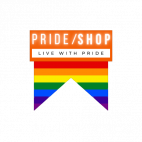The True Story of the Rainbow Flag
The Rainbow Flag is a globally recognized symbol of diversity, inclusivity, and love, and has become an iconic emblem of the LGBT community. Created in 1978 by artist and activist Gilbert Baker, the Rainbow Flag has a rich history and represents a powerful message of acceptance and unity.

The rainbow flag was created in 1978 by Gilbert Baker, an artist and LGBTQ+ activist from San Francisco who was a friend and colleague of Harvey Milk, the first openly gay person elected to public office in California.
Baker designed the flag to be flown at the San Francisco Pride Parade that same year. The original flag had eight stripes, each with a different color and meaning: pink for sexuality, red for life, orange for healing, yellow for sunlight, green for nature, turquoise for magic and art, blue for serenity, and violet for spirit. However, the pink and turquoise stripes were later dropped due to the difficulty of finding pink fabric, and the turquoise stripe was later removed to make it easier to mass-produce.
While the rainbow flag is widely recognized as a symbol of the LGBTQ+ community, there has been some debate and discussion in recent years about the possible cultural appropriation of the rainbow symbol. Some have pointed out that the rainbow has been used in various cultural contexts throughout history, including in indigenous cultures such as the Inca civilization in South America, where the rainbow was seen as a gift from the gods.
Read also : What does queer mean in the LGBTQ+ Community ?
Despite these debates, the rainbow flag remains an important symbol of pride and resilience for the LGBTQ+ community, and it continues to be flown at Pride events and other LGBTQ+ gatherings around the world.
The Birth of the Rainbow Flag
In 1978, San Francisco artist Gilbert Baker created the first Rainbow Flag in response to the need for a symbol that would represent the LGBTQ+ community. Harvey Milk, the first openly gay elected official in California, was instrumental in commissioning Baker to design the flag.
Heading 2: The Symbolism of the Rainbow Flag
The Rainbow Flag is composed of six colors, each with its own unique meaning. The colors are as follows:
- Red: symbolizes life
- Orange: symbolizes healing
- Yellow: symbolizes sunlight
- Green: symbolizes nature
- Blue: symbolizes harmony
- Purple: symbolizes spirit
The Evolution of the Rainbow Flag
Over the years, the Rainbow Flag has undergone several changes and variations. In 1979, the original flag had eight colors, including pink and turquoise, which were later removed due to the unavailability of pink fabric and the high cost of turquoise dye.
Heading 4: The Rainbow Flag Today
Today, the Rainbow Flag is recognized worldwide as a symbol of LGBTQ+ pride and inclusivity. It is flown at pride events, protests, and LGBTQ+ establishments across the globe.
FAQs
Q: What is the significance of the Rainbow Flag? A: The Rainbow Flag represents the LGBTQ+ community and its struggle for equality and acceptance.
Q: What do the colors of the Rainbow Flag represent? A: Each color of the Rainbow Flag has its own unique meaning, symbolizing life, healing, sunlight, nature, harmony, and spirit.
Q: Who designed the Rainbow Flag? A: The Rainbow Flag was designed by San Francisco artist Gilbert Baker in 1978.
Q: How has the Rainbow Flag evolved over time? A: The Rainbow Flag has undergone several changes and variations since its creation, including the removal of pink and turquoise colors.
DISCOVER THE PRIDE SHOP

